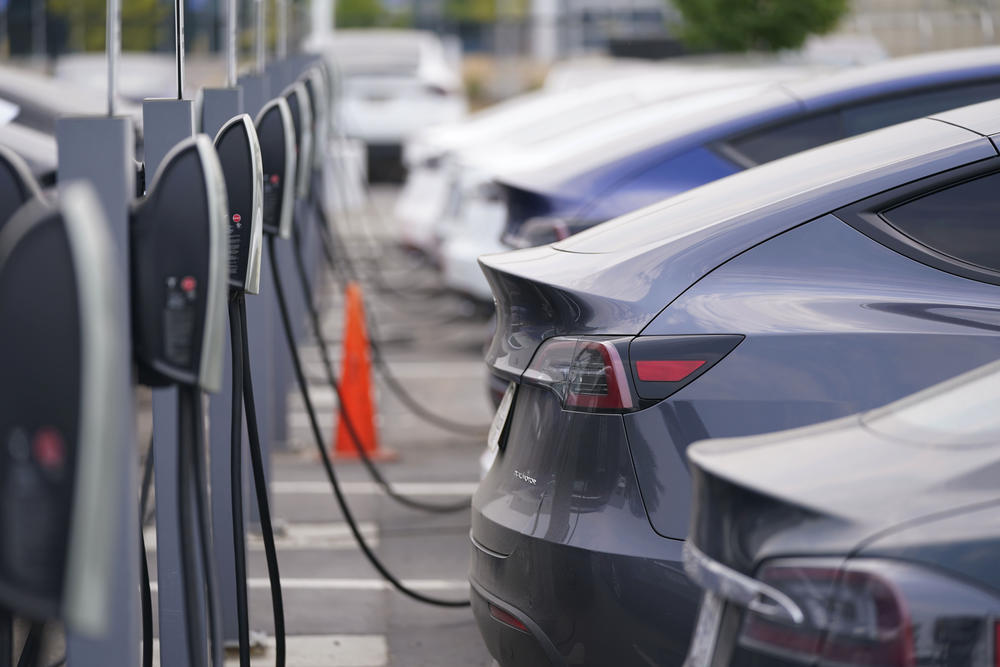
Caption
Georgia is expecting new jobs in electric vehicle manufacturing, and charging stations are part of the plan.
Credit: AP Photo/David Zalubowski
A joint study by members of the Georgia Legislature on the future of electric transportation in the state wrapped up this week. But as GPB’s Amanda Andrews explains, some big details are left for the next legislative session.

Georgia is expecting new jobs in electric vehicle manufacturing, and charging stations are part of the plan.
Members of Georgia’s House and Senate joint committee studying electrification of transport in the state approved a series of recommendations, but they left some details to be sorted in the legislative session.
After months of study and meetings across the state, members could not agree on the role Georgia Power should play in the development of electric vehicle charging stations. Some members of the committee argued Georgia Power could be the only option for rural areas, but others argue the company should step aside to make room for small businesses.
State Sen. Larry Walker III said he understands the concerns.
“Private business owners need some certainty,” he said. “If they're going to make a big investment in charging stations, they don't want to do that and then the next few months or year or whatever the public utility come next door to them and undercut them.”
The major concern is that Georgia Power would increase the rates for all utilities customers to keep the prices low for customers using their chargers and undercut convenience stores' pricing. How rates will be determined is likely up to individual electric membership cooperatives. Members voted against a recommendation for the Public Service Commission to set charging rates.
State Sen. Frank Ginn argued that EMCs and privately owned chargers should be able to operate independently.
“I don't want the Public Service Commission to be able to regulate the EMC," he said. “That's up to the EMC. They set all their rates all over the state. For me, as long as it's investor-owned, the Public Service Commission shouldn't manage that rate.”
Recommendations the committee settled on include: establishing more fees on EV owners to make up for lost gas tax revenue, establishing per kilowatt-based charging fees, and further training for emergency responders for EV-related accidents.